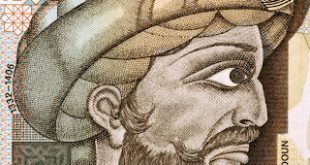Just an old commentary from 2006 as written by Mark Thoma when he was writing Economist’s View. If you don’t know, Mark discontinued his writing there and retired. I see him now and then (or used to) on Facebook. Here he gives a bit of history on Adam Smith. “The Many Faces of Adam Smith“ This column by Alan Krueger from 2001 is a reminder that Adam Smith was not a “narrow, unyielding defender of unfettered free enterprise”: The many faces...
Read More »What’s the deal with The Smiths
With friends like this... This is NOT a review of the Smiths (the band), and neither of (or at least not a full one) of Glory M. Liu's (relatively) new book Adam Smith's America: How a Scottish Philosopher Became An Icon of American Capitalism. For a proper review go read Kim Phillips-Fein's one. In a sense, the book remind me of Bernard Shaw's famous saying that UK and the US were two countries divided by the same language. Here the gap is between fields, and there are two gaps, one within...
Read More »Classical Political Economy or the Surplus Approach
[embedded content]Here our other conversation with LP Rochon, about the chapter on Classical or Surplus approach authors. My co-author, Suranjana Nabar-Bhaduri and I talk about the Real Bills Doctrine, Bullionism, Say's Law the implications for theories of crisis. And about several authors, Smith, Ricardo, Tooke and more.
Read More »The worldly philosophers go to Washington: Episode 3, Farmer and Merchants
[embedded content]
Read More »Economics without Gaps: on Ibn Khaldun and non-Western traditions in the history of ideas
Ibn Khaldun, Arab scholarA piece* from a few years ago, has again become somewhat popular and it has been making the rounds. It suggests that the Arab scholar Ibn Khaldun developed the ideas of classical political economics in the late XIV century, about half a millennia before Adam Smith, often seen as the father of classical economics, and of modern economics. Some would suggest that Khaldun was the real father of economics (or stepfather in the first essay on top). To a great extent, the...
Read More »Poor Richard Goes to London: The Economic Ideas of Benjamin Franklin
[embedded content]Another episode of my podcast on The Worldly Philosophers Go to Washington: From Alexander Hamilton to Janet Yellen. The ideas of early classical political economists and their influence in America are analyzed in this episode. The role of Sir William Petty’s ideas in the development of Benjamin Franklin’s early policy proposals is discussed. It is noted how Franklin had a firm grasp of the main economic theories of his time, even before some of these ideas were fully...
Read More »Das Adam Smith problem
[embedded content] A short lecture on Adam Smith's problem for a Principles class. This might be of more general interest, and perhaps something to watch during the quarantine. The book I used for the lectures on history of economic ideas was Heinz Kurz's Economic Thought: A Brief History, a book that I highly recommend. The discussion here is heavily influenced by Tony Aspromourgos' book The science of wealth: Adam Smith and the framing of political economy, another one you should read if...
Read More »COVID-19: The Butcher, the Brewer, and the Baker
By James Kwak “It is not from the benevolence of the butcher, the brewer, or the baker that we expect our dinner, but from their regard to their own interest.” —Adam Smith, The Wealth of Nations Image by Mandy Fontana from PixabayThis is the most famous line from the most famous justification of market capitalism. Smith’s point is that it is individual self-interest that drives the economy. In the next paragraph, he goes on to describe how gains from trade explain the division of labor in...
Read More »COVID-19: The Butcher, the Brewer, and the Baker
By James Kwak “It is not from the benevolence of the butcher, the brewer, or the baker that we expect our dinner, but from their regard to their own interest.” —Adam Smith, The Wealth of Nations Image by Mandy Fontana from PixabayThis is the most famous line from the most famous justification of market capitalism. Smith’s point is that it is individual self-interest that drives the economy. In the next paragraph, he goes on to describe how gains from trade explain the division of labor in...
Read More »The Making of Homo Financius and Neoliberal Morality Oleg Komlik
In their paper Maman and Rosenhek made an insightful contribution in shedding light on how the state agencies, institutional actors and mechanisms concoct the neoliberal morality and conduct the moralization of the economic field within particular macro-institutional context. This important research direction should be amplified more in our field. One thing is certain: in (neoliberal) capitalism moral sentiments play a key role in the extraction of economic value. Maman, Daniel and Zeev...
Read More » Heterodox
Heterodox



